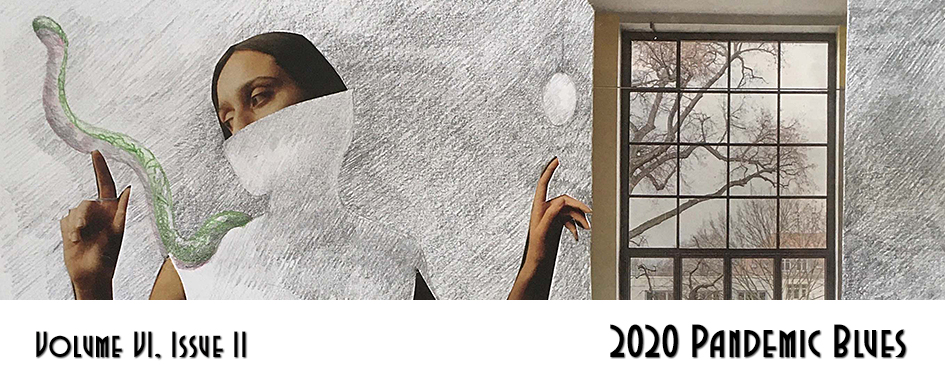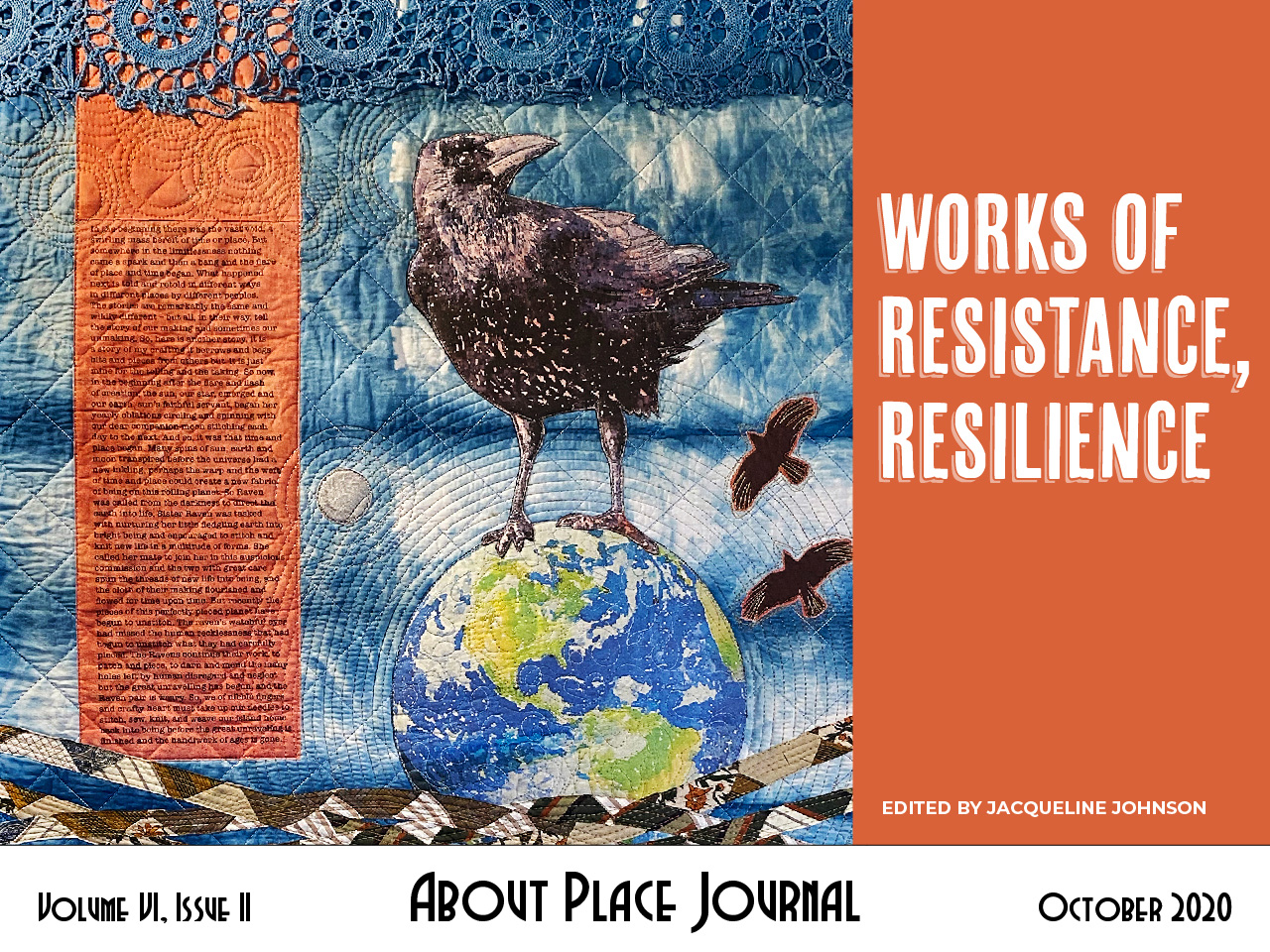My first English professor died of heartbreak
a few weeks before the world began dying,
exponentially, when you could still gather
at a graveside to mourn, when the dead weren’t buried remotely,
telemonitors bringing them into the room
where you sit surrounded by the everydayness of life–
water glasses, candlesticks, bananas browning.
She taught us about everything that poetry and science
have in common– two halves of the same fruit–
solar eclipses and migraine headaches, even mental illness
was more metaphor than fact, containing something of magic.
That year I was 17, at a college for women,
I heard for the first time about Darfur, Sierra Leone,
Sudan, the way the women and girls are raped when they go for water,
how they negotiate that danger with their fathers and husbands:
the probability of her rape, the likelihood of his murder,
setting out for something as innocuous as water.
This comes back to me, thirty years later,
we have been at home for three weeks,
we’ll be here that much more, and longer,
and you offer to go into the city, not for water
but for meat and bread– you’ll shop for my parents, even,
who have asked for dark coffee, coastal cheese, mixed nuts, chicken–
in mask and gloves you’ll queue outside the store at dawn
and I’ll wait at home for you, watching the sun come up over the desert,
I won’t be able to stop thinking about the poetry in this,
I won’t stop imagining a tribe of people,
brightly dressed and singing as they come
not through the Sahara but the Mojave, not along the Nile
but around the bends in our lake, half full of water, until
they arrive at my home and I feed them with our bounty.


